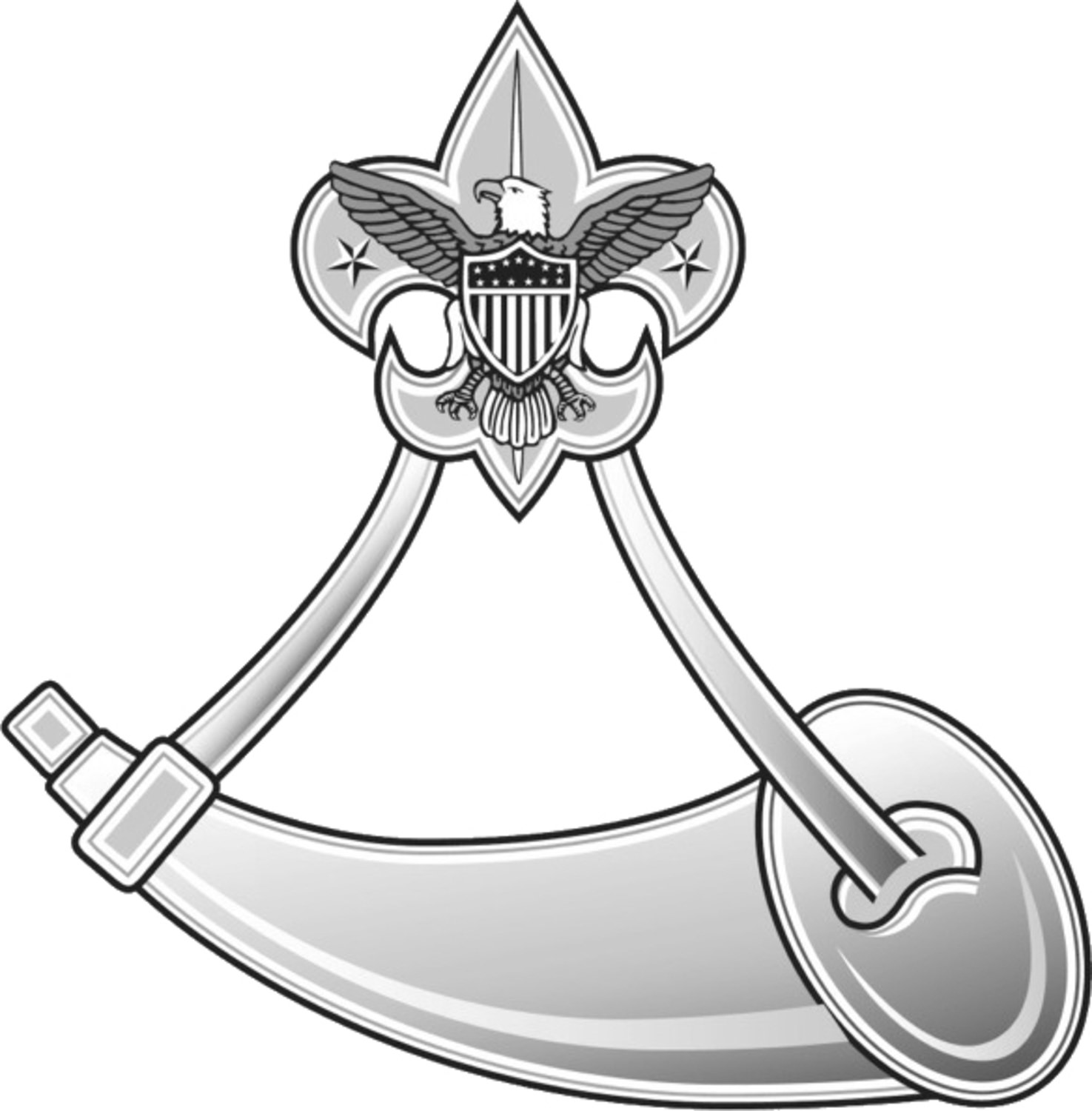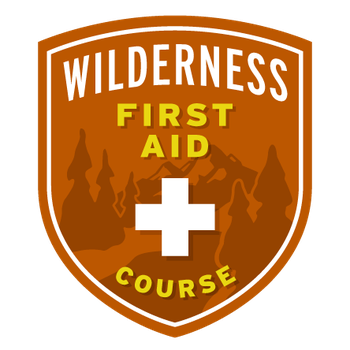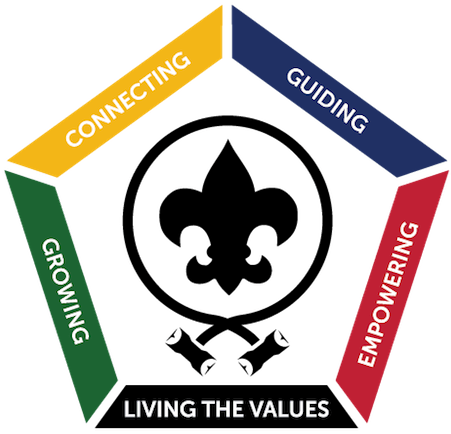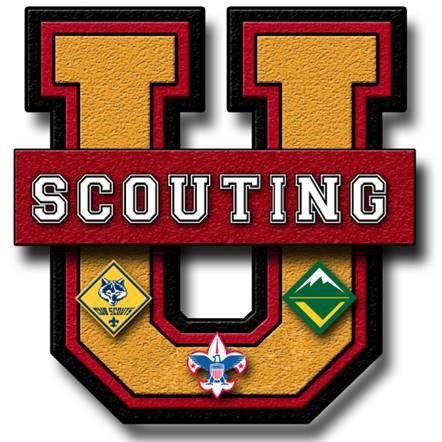Ranks for Adult Scouting Program
- Pathfinder
- Adventurer
- Guide
- Ranger
- Trailblazer
Requirements for Each Rank
Pathfinder
- Introduction to Scouting: Complete an orientation session about the adult scouting program.
- Basic Outdoor Skills: Demonstrate basic camping and survival skills, including setting up a tent, starting a campfire, and basic first aid.
- Community Service: Participate in at least one community service project.
- Leadership Training: Complete an introductory leadership training course.
- Physical Fitness: Commit to a personal fitness plan and complete a fitness challenge.
Adventurer
- Advanced Outdoor Skills: Demonstrate advanced skills such as orienteering, wilderness cooking, and water purification.
- Project Management: Lead a small-scale project or event within the troop.
- Community Service: Participate in two additional community service projects.
- Environmental Awareness: Complete a course on environmental conservation and practice Leave No Trace principles.
- Physical Challenge: Complete a more demanding physical challenge, such as a long hike or a run.
Guide
- Mentorship: Mentor a new adult scout or a youth scout in their activities.
- Specialized Skills: Gain proficiency in a specialized skill such as rock climbing, kayaking, or another outdoor activity.
- Community Service: Lead a community service project.
- Leadership Course: Complete an intermediate leadership course.
- Physical Fitness: Maintain a fitness log and complete a group physical activity like a team hike.
Ranger
- Expert Skills: Achieve expert level in at least one specialized outdoor skill and teach it to others.
- Event Organization: Organize a major troop event or expedition.
- Community Service: Initiate and lead a significant community service initiative.
- Leadership Course: Complete an advanced leadership course.
- Survival Challenge: Participate in a survival challenge or similar high-adventure activity.
Trailblazer
- Mastery and Teaching: Master multiple outdoor skills and take on a regular teaching role within the troop.
- Legacy Project: Plan and execute a legacy project that benefits the troop or community.
- Service Leadership: Lead multiple community service projects and mentor other adults in service activities.
- Leadership Excellence: Complete a comprehensive leadership training program and demonstrate leadership excellence in various troop activities.
- Physical Mastery: Complete a significant physical challenge, such as a multi-day hike, marathon, or similar endurance activity.
OUTDOOR SKILL BADGES
Culinary Skills
- Cooking: Demonstrate proficiency in outdoor cooking.
- Nutrition: Plan a balanced menu for a multi-day trip.
- Preparation: Prepare meals using various outdoor cooking methods.
- Group Cooking: Organize and lead a group cooking activity.
- Merit Badge: Complete the requirements for the Cooking Merit Badge.
Wilderness Survival
- Skills: Demonstrate the ability to build a shelter using natural materials.
- Fire Making: Start a fire without matches or lighters.
- Water: Find and purify water in the wilderness.
- Food: Identify edible plants and demonstrate basic foraging skills.
- Safety: Understand and implement basic wilderness safety protocols.
- Merit Badge: Complete the requirements for the Wilderness Survival Merit Badge.
Orienteering
- Navigation: Use a map and compass to navigate a set course.
- GPS: Demonstrate the use of a GPS device for navigation.
- Landmarks: Identify natural landmarks and use them for navigation.
- Planning: Plan and lead an orienteering course for other scouts.
- Merit Badge: Complete the requirements for the Orienteering Merit Badge.
First Aid
- Emergency Response: Demonstrate how to handle common outdoor injuries.
- Medical Kits: Assemble a comprehensive first aid kit.
- Scenario Training: Participate in simulated emergency scenarios.
- Merit Badge: Complete the Requirements for the First Aid Merit Badge.
- First Aid Certification: Complete CPR and First Aid Certification.
- Wilderness First Aid: Complete a Wilderness First Aid Coursae or equivalent
Water Sports
- Swimming: Demonstrate proficiency in swimming.
- Boating: Obtain certification in canoeing, kayaking, or sailing.
- Safety: Understand and implement water safety practices. Complete Safe Swim Defense and Safety Afloat.
- Expedition: Participate in a water-based expedition.
- Merit Badge: Complete the Lifesaving, Swimming, Kayaking or Canoeing or Small Boat Sailing Merit Badge.
Climbing Sports
- Skills: Demonstrate basic climbing/rapelling skills.
- Safety: Understand and practice climbing safety protocols. Complete Climb On Safely.
- Lead Climb: Lead a climbing/rapelling route.
- Instruction: Teach basic climbing/rapelling skills to others.
Backpacking
- Trip Planning: Plan a multi-day backpacking trip, including route, supplies, and logistics.
- Packing: Demonstrate the ability to pack a backpack efficiently and appropriately for a trip.
- Navigation: Use a map and compass to navigate your backpacking route.
- Leave No Trace: Practice and teach Leave No Trace principles during the trip.
- Merit Badge: Complete the Backpacking Merit Badge.
Hiking
- Trail Knowledge: Hike at least three different types of trails (e.g., mountain, desert, forest).
- Distance: Complete a series of hikes totaling at least fifty miles.
- Safety: Understand and practice hiking safety, including hydration and first aid.
- Trail Leadership: Lead a group hike and ensure all participants are prepared and safe.
- Merit Badge: Complete the Hiking Merit Badge.
Camping Logistics Badge
- Duty Rosters: Develop a duty roster for a camping trip, assigning responsibilities such as cooking, cleaning, and setting up camp. Ensure the roster is followed during the trip and make adjustments as necessary.
- Menu Planning: Plan a full menu for a multi-day camping trip, including breakfast, lunch, dinner, and snacks. Ensure meals are balanced and consider any dietary restrictions of the group. Create a shopping list based on the menu and budget for the trip.
- Reservations: Identify and research potential camping sites, considering factors such as location, amenities, and regulations. Make reservations for the chosen camping site, ensuring all necessary permits and fees are handled.
- Trailer Logistics: Create a list of necessary camping equipment and supplies. Demonstrate the ability to efficiently pack a trailer. Safely load and secure all items in the trailer, ensuring weight distribution is balanced. Demonstrate the ability to back up and maneuver a trailer safely, including parking and setting up the trailer at the campsite.
- Safety and Maintenance: Perform a safety inspection of the trailer before the trip, checking tires, lights, and hitch connections. Understand basic trailer maintenance, such as checking tire pressure and ensuring proper lubrication of moving parts.
- Camping Setup: Choose an appropriate site for setting up camp, considering factors such as terrain, proximity to water, and safety. Efficiently set up camp, including tents, cooking areas, and a communal space.
- Documentation: Document the entire planning process, including duty rosters, menus, reservation details, packing lists, and safety checks. After the trip, evaluate the effectiveness of the planning and logistics, noting any improvements for future trips.
Shooting Sports Badge
- Safety Training: Complete an NRA-approved certified firearm safety course covering the basics of firearm operation, safety rules, and handling procedures. Optional: Earn your NRA Instructor Certification for shotgun, rifle, pistol, or black powder.
- Range Safety: Demonstrate knowledge of range safety rules and protocols, including the use of personal protective equipment (PPE) such as ear and eye protection. Earn your NRA Range Safety Officer Certification.
- Marksmanship:
- Rifle: Demonstrate proficiency in shooting a rifle, including proper stance, grip, sight alignment, and trigger control. Achieve a minimum score on a marksmanship test.
- Shotgun: Demonstrate proficiency in shooting a shotgun, including proper stance, grip, and follow-through. Successfully hit a series of moving clay targets.
- Pistol: Demonstrate proficiency in shooting a pistol, including proper stance, grip, sight alignment, and trigger control. Achieve a minimum score on a marksmanship test.
- Range Setup and Management: Assist in setting up a shooting range, including target placement, backstop setup, and safety area demarcation. Participate in managing a shooting event, ensuring safety protocols are followed and assisting with range officer duties.
Firearm Maintenance: Demonstrate how to safely clean and maintain different types of firearms, including rifles, shotguns, and pistols. Perform a basic safety inspection of firearms to ensure they are in good working condition before use.
Shooting Sports History: Learn about the history and evolution of shooting sports. Present a brief report or presentation on a specific aspect of shooting sports history, such as the development of competitive shooting or the role of shooting sports in hunting and conservation.
Competitive Shooting: Participate in a shooting competition or event. Record your scores and evaluate your performance. Demonstrate good sportsmanship and ethical behavior during the event, both in competition and in interactions with other participants.
- Advanced Skills:
- Long-Range Shooting: Demonstrate the ability to shoot accurately at long-range targets, understanding the principles of bullet trajectory, windage, and elevation adjustments.
- Practical Shooting: Participate in a practical shooting exercise that involves moving between different shooting positions and engaging multiple targets.
- Legal Knowledge: Learn about and understand local, state, and federal laws regarding firearm ownership, transportation, and use. Demonstrate knowledge of legal responsibilities and ethical considerations in shooting sports.
Kayaking/Canoeing
- Skills: Demonstrate basic kayaking strokes and techniques.
- Safety: Understand and practice kayaking safety, including self-rescue techniques. Complete Safety Afloat.
- Certification: Obtain a certification in kayaking from a recognized organization.
- Expedition: Participate in a kayaking expedition, either river or sea.
- Merit Badge: Complete the Kayaking or Canoeing Merit Badge.
LEADERSHIP SKILL BADGES
Leadership
- Training: Complete an advanced leadership training course.
- Mentorship: Mentor at least one other scout.
- Project Management: Lead a significant troop project or event.
- Conflict Resolution: Demonstrate skills in conflict resolution and mediation.
Environmental Conservation
- Education: Complete a course on environmental science or conservation.
- Project: Participate in or lead a conservation project.
- Leave No Trace: Practice and teach Leave No Trace principles.
- Habitat Restoration: Work on a habitat restoration project.
Community Service
- Projects: Participate in multiple community service projects.
- Leadership: Lead at least one community service project.
- Impact: Demonstrate the impact of the projects on the community.
- Networking: Establish connections with local organizations for future projects.
EXPLORATION BADGES
National Parks Explorer
- Visits: Visit and explore at least five (5) national parks.
- History and Ecology: Learn about the history and ecology of each park visited.
- Documentation: Keep a journal or blog documenting your visits, including photos and personal reflections.
- Conservation: Participate in a conservation or volunteer project in at least one park.
- Junior Ranger; Complete the Jr. Ranger Program with your scout from the National Park.
State Parks Explorer
- Visits: Visit and explore at least ten (10) state parks.
- History and Ecology: Learn about the history and ecology of each park visited.
- Documentation: Keep a journal or blog documenting your visits, including photos and personal reflections.
- Community Service: Participate in a community service project in at least one state park.
Starbucks Explorer
- Visits: Visit and explore 15 different Starbucks in 5 different states.
- Coffecodynamics: Learn about how coffee impacts adults
- Personal Journal: Keep a journal or blog documenting your Starbucks exploration journey. Include details about the locations visited, drinks and food tried, coffee education experiences, and community engagement activities.
- Menu Knowledge: Learn about the Starbucks menu, including different types of coffee, teas, and seasonal offerings. Try at least three different types of drinks and three different food items.
- Barista Skills: Learn and demonstrate basic barista skills, such as making an espresso, frothing milk, and preparing a latte. Optionally, attend a barista workshop or training session.
- Recipe Creation: Create your own unique Starbucks-inspired drink or food item. Share the recipe and your creation with others, either in person or online.
Coffee Making
- Knowledge: Learn about different types of coffee beans and their origins.
- Brewing Methods: Demonstrate proficiency in at least three different coffee brewing methods (e.g., French press, pour-over, espresso).
- Roasting: Roast your own coffee beans.
- Tasting: Host a coffee-tasting event, teaching others about the flavors and characteristics of different brews.
LIFE SKILLS
Budgeting
- Education: Complete a course or workshop on personal finance and budgeting.
- Budget Creation: Create a detailed monthly budget and track your expenses for three months.
- Savings Plan: Develop a savings plan for a specific goal (e.g., vacation, emergency fund).
- Debt Management: Learn about and apply strategies for managing and reducing debt.
Planning
- Goal Setting: Set short-term and long-term personal and professional goals.
- Action Plan: Develop a detailed action plan to achieve these goals, including milestones and timelines.
- Project Management: Plan and execute a small personal or professional project.
- Review: Conduct regular reviews of your plans and adjust as necessary.
Parenting
- Education: Attend parenting classes or workshops.
- Child Development: Learn about different stages of child development and appropriate parenting strategies.
- Activities: Plan and participate in educational and recreational activities with your children.
- Support Network: Establish and utilize a support network of other parents, family members, and professionals.
Emergency Preparedness
- First Aid: Obtain certification in first aid and CPR.
- Emergency Plan: Create an emergency preparedness plan for your household.
- Kit Assembly: Assemble a comprehensive emergency supply kit.
- Drills: Conduct regular emergency drills with your family or household.
Home Maintenance
- Basic Repairs: Learn and demonstrate basic home repair skills (e.g., plumbing, electrical, carpentry).
- Preventative Maintenance: Create a schedule for regular home maintenance tasks (e.g., HVAC servicing, roof inspection).
- DIY Project: Complete a DIY home improvement project.
- Safety: Understand and implement home safety measures (e.g., smoke detectors, carbon monoxide detectors).
Cooking
- Meal Planning: Plan and prepare a week’s worth of healthy meals.
- Cooking Techniques: Demonstrate proficiency in various cooking techniques (e.g., baking, grilling, sautéing).
- Nutrition: Learn about and apply principles of nutrition in meal planning.
- Special Diets: Prepare meals for specific dietary needs (e.g., gluten-free, vegetarian).
Health and Wellness
- Fitness Plan: Develop and follow a personal fitness plan.
- Nutrition: Learn about and incorporate healthy eating habits.
- Mental Health: Learn strategies for managing stress and maintaining mental health.
- Regular Check-Ups: Schedule and attend regular health check-ups.
Time Management
- Techniques: Learn and apply various time management techniques (e.g., Pomodoro, Eisenhower Matrix).
- Prioritization: Develop skills for prioritizing tasks and managing deadlines.
- Tool Utilization: Use time management tools (e.g., planners, apps) effectively.
- Review: Regularly review and adjust your time management strategies.
Public Speaking
- Training: Complete a public speaking course or workshop.
- Presentation Skills: Prepare and deliver multiple presentations on various topics.
- Feedback: Seek and apply feedback to improve your speaking skills.
- Event: Speak at a public event or meeting.
Career Development
- Resume Building: Create or update your professional resume.
- Networking: Attend networking events and expand your professional network.
- Skill Development: Identify and pursue opportunities for professional skill development.
- Mentorship: Seek or become a mentor within your industry or field.
Fitness
- Assessment: Complete a personal fitness assessment.
- Plan: Develop and follow a personal fitness plan.
- Challenges: Participate in physical challenges such as hikes, runs, or obstacle courses.
- Group Activity: Lead a group fitness activity.
Duty to God Badge
- Faith Exploration: Spend time studying the core beliefs and teachings of your faith tradition. Reflect on how these teachings influence your daily life and decisions. Participate in discussions or study groups within your faith community to deepen your understanding.
- Worship and Practice: Regularly attend worship services or religious gatherings. Take an active role in your faith community, such as volunteering, reading scriptures, or helping with services. Understand and participate in the rituals and practices of your faith.
- Service: Participate in at least two community service projects organized by your faith community. Undertake a personal service project that reflects the values of your faith, such as helping a neighbor, mentoring youth, or supporting those in need.
- Interfaith Understanding: Learn about the beliefs and practices of at least one other faith tradition. Engage in respectful dialogue with individuals from different faith backgrounds to foster understanding and respect. Visit a place of worship or a religious event of another faith tradition.
- Personal Growth: Set personal goals for spiritual growth and outline steps to achieve them. Seek guidance and mentorship from a religious leader or a respected member of your faith community. Keep a journal of your spiritual journey, noting significant experiences, reflections, and insights.
- Sharing Your Faith: Prepare and share your personal testimony or faith story with others. Teach or assist in teaching others about your faith, whether through formal religious education or informal discussions. Participate in outreach activities that share your faith’s message in a respectful and compassionate manner.
Spiritual Practices:
- Prayer: Develop a regular practice of prayer or meditation.
- Study: Commit to regular study of your religious texts or writings.
- Fasting/Reflection: Participate in any recommended practices of fasting or personal reflection as outlined by your faith

Event: Powderhorn
Date: April and May 3-5
Registration: Link
Description:
Powder Horn is a high-adventure resource-management course designed to educate adult and youth involved in the Venturing program about the Ranger Award. This course will give all participants an opportunity to experience the Ranger Award program themselves, and become knowledgeable about how to safely conduct outdoor activities of a fun and challenging nature. Participants must attend both weekends, 4/19-21 and 5/3-5.
Cost: $300 Early | $350 Late

Event: NRA Shotgun Instructor’s Course
Date: April 26-28
Location: Camp Friedlander
Registration: Link
Description:
MEALS AND LODGING ARE INCLUDED WITH THIS COURSE
Short Description : This course teaches the knowledge, skills and attitude essential to organizing, promoting and teaching NRA’s Basic Shotgun Shooting course.
For further information and/or details, please call or email Training Counselor Tony Scovanner at 513-518-3212 or tscovanner@cinci.rr.com.
Cost:
Basic Shotgun: $100
Shotgun Instructor: $175
Shotgun Instructor + Basic Shotgun: $195
Basic Instructor: $45
Non-Scouter
Basic Shotgun: $100
Shotgun Instructor: $240
Shotgun Instructor + Basic Shotgun: $295
Basic Instructor: $60

Event: Wilderness First Aid
Date: June 8-9
Location: Camp Friedlander
Registration: Link
Description: Saturday 8:00 am – 5 pm
Sunday 8:00 am – 5 pm
A Wilderness First Aid (WFA) course is designed to equip individuals with the knowledge and skills necessary to respond to medical emergencies in remote or wilderness environments where professional medical help may be delayed or unavailable. Participants learn how to assess and treat injuries and illnesses commonly encountered in outdoor settings, such as fractures, sprains, hypothermia, and insect bites. The curriculum typically includes hands-on scenarios and simulations to simulate real-life wilderness situations, emphasizing improvisation and resourcefulness with limited medical supplies. Wilderness First Aid courses are essential for outdoor enthusiasts, wilderness guides, and anyone venturing into remote areas where access to medical care is limited.
Lunch is provided on Saturday and Sunday. If you need accommodations, you are welcome to camp in a campsite. You should plan accordingly for the weather forecast.
You should bring a pad of paper and a pen for notes and you may want to bring a water bottle as well. All other supplies are provided. The class is broken down into several parts: lecture, hands-on skill practice and outdoor simulations. We will be outside for significant lengths of time, so please bring weather dependent clothing. (i.e rain gear or cold weather gear)
Cost:
$240 Adult
$225 Youth

Event: NRA Muzzle Loader Instructor’s Course
Date: August 9-11
Location: Camp Friedlander
Registration: Link
Description:
For further information and/or details, please call or email Training Counselor Tony Scovanner at 513-518-3212 or tscovanner@cinci.rr.com.
Cost:
Basic Shotgun: $100
Shotgun Instructor: $175
Shotgun Instructor + Basic Shotgun: $195
Basic Instructor: $45
Non-Scouter
Basic Shotgun: $100
Shotgun Instructor: $240
Shotgun Instructor + Basic Shotgun: $295
Basic Instructor: $60

Event: Wood Badge
Date: Sept 6-8, Sept 21-22
Location: Camp Friedlander
Registration: Link
Description: Wood Badge is a comprehensive leadership training program for adult leaders in the Boy Scouts of America and other scouting organizations worldwide. It focuses on enhancing leadership skills, team building, and fostering a deeper understanding of the scouting movement’s values and methods. Through a combination of practical outdoor activities, classroom sessions, and hands-on learning experiences, participants develop the tools and confidence to effectively lead and mentor youth in scouting programs. Wood Badge is renowned for its experiential approach, emphasizing leadership in the context of scouting’s principles and ideals.
Cost:
$315 Early Bird (until 5/10/24)
$345 Regular (until 8/2/24)
$365 Late Registration
Event: Peterloon
Date: Oct 4-6
Location: Peterloon Field in Cub World
Registration: Already Registered
Description:
Leadership in Action focuses on the importance of leadership, teamwork, and cooperation, and how these essential skills can be used to impact the world positively. It encourages Scouts to develop skills to help themselves and others.
$40

Event: Scouting U
Date: Nov 9
Location: TBD
Registration: Link
Description:
FREE!